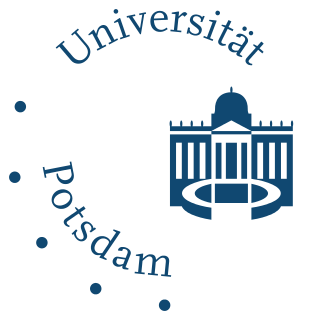The Master of Public Policy (MPP), is one of several public policy degrees. An MPP is a master's-level professional degree that provides training in policy analysis and program evaluation at public policy schools. The MPP program places a focus on the systematic analysis of issues related to public policy and the decision processes associated with them. This includes training in the role of economic and political factors in public decision-making and policy formulation; microeconomic analysis of policy options and issues; resource allocation and decision modeling; cost/benefit analysis; statistical methods; and various applications to specific public policy topics. MPP recipients serve or have served in the public sector, at the international, national, subnational, and local levels and the private sector.
Wolfgang Drechsler is a Public Administration and Management, Innovation Policy and Political Philosophy scholar. He is Professor of Governance, and one of the founders and directors of the Technology Governance program, at the Tallinn University of Technology, Tallinn, Estonia, where between 2010 and 2016 he also served as Vice Dean for International Relations at its Faculty of Social Sciences. Since 2017, he is also affiliated with Harvard University, as a Davis Center Associate and for six years a member of the center’s Advisory Board, and since 2019, with University College London, where he is Honorary Professor at the Institute for Innovation and Public Purpose (IIPP) and Principal Investigator of the John Templeton Foundation "Islamic Public Value" project.
The German Academic Exchange Service, founded in 1925, is the largest German support organisation in the field of international academic co-operation.
The Munk School of Global Affairs and Public Policy at the University of Toronto is an interdisciplinary academic centre. It offers various research and educational programs related to the field of globalization. It is located in Toronto, Ontario, offers master's degrees in global affairs and public policy, and a master's degree in European, Russian and Asia-Pacific studies. This school is a member of the Association of Professional Schools of International Affairs (APSIA). It also works in group of schools that educate students in international affairs. The Munk School's Master of Global Affairs program typically receives 500 and 600 applicants per year and offers 80 students entry into its program.

The University of Erfurt is a public university located in Erfurt, the capital city of the German state of Thuringia. It was founded in 1379, and closed in 1816. It was re-established in 1994, three years after German reunification. Therefore, it claims to be both the oldest and youngest university in Germany. The institution identifies itself as a reform university, due to its most famous alumnus Martin Luther, the instigator of the Reformation, who studied there from 1501 to 1505. Today, the main foci centre on multidisciplinarity, internationality, and mentoring.

Osnabrück University is a public research university located in the city of Osnabrück in Lower Saxony, Germany.

The Hubert H. Humphrey School of Public Affairs is a public policy and planning school at the University of Minnesota, a public land-grant research university in the Twin Cities of Minneapolis and Saint Paul, Minnesota. It is named after Hubert H. Humphrey, former Vice President of the United States and presidential candidate. The school is located on the West Bank of the University of Minnesota, which is also home to the University of Minnesota Law School and Carlson School of Management in Minneapolis. The Humphrey School is accredited by the Network of Schools of Public Policy, Affairs, and Administration (NASPAA).

The University of Duisburg-Essen is a public research university in North Rhine-Westphalia, Germany. In the 2019 Times Higher Education World University Rankings, the university was awarded 194th place in the world. It was originally founded in 1654 and re-established on 1 January 2003, as a merger of the Gerhard Mercator University of Duisburg and the university of Essen. It is based in both the cities of Duisburg and Essen, and a part of University Alliance Metropolis Ruhr.

The Gerald R. Ford School of Public Policy, also known as the Ford School, is the public policy school of the University of Michigan in Ann Arbor, Michigan. Founded in 1914 to train municipal administration experts, the school was named after University of Michigan alum and former U.S. President Gerald Ford in 1999.

The University of Potsdam is a public university in Potsdam, capital of the state of Brandenburg, northeastern Germany.

A public policy school is typically a university program, institution, or professional school that teaches students policy analysis, program evaluation, policy studies, public policy, political economy, urban planning, public administration, international relations, security studies, nonprofit studies-nonprofit management, political science, urban studies, intelligence studies, global studies, emergency management, public affairs and/or public management. Public policy schools typically train students in two streams. The more practical stream treats the master's degree as a terminal degree, which trains students to work as policy analysts or practitioners in governments, government relations, think tanks, business-to-government marketing/sales, and consulting firms. A more theoretical stream aims to train students who are aiming to go on to complete doctoral studies, with the goal of becoming professors of public policy, political science in general, or researchers.
The School of Public and International Affairs (SPIA) at Virginia Tech offers graduate and undergraduate education in the fields of public administration, public policy, international affairs, urban affairs, and urban & regional planning. It has three campuses throughout Virginia: Arlington; Blacksburg and Richmond.
The Maryland School of Public Policy is one of 14 schools at the University of Maryland, College Park. The school is located inside the Capital Beltway and ranks 16th nationally for schools of public policy according to U.S. News & World Report (2012).

The McCourt School of Public Policy is one of ten constituent schools of Georgetown University. The McCourt School offers master's degrees in public policy, international development policy, policy management, data science for public policy, and policy leadership as well as administers several professional certificate programs and houses fifteen affiliated research centers. The McCourt School has twenty-one full-time faculty members, ten visiting faculty members, more than one-hundred adjunct faculty members and approximately 450 enrolled students across the various degree and executive education programs.

The Hertie School is a German private, independent graduate school for governance located in Berlin. Hertie School is accredited to confer master's and doctoral degrees. Half of the school's students are international, with more than 95 countries represented among alumni and currently enrolled students. The working language is English.

The Frank Batten School of Leadership and Public Policy is the public policy school of the University of Virginia.

The Trachtenberg School, officially the Trachtenberg School of Public Policy and Public Administration (TSPPPA), is the graduate school of public policy and public administration in the Columbian College of Arts and Sciences of the George Washington University, in Washington, D.C.

Stephen J. Silvia is a professor at American University's School of International Service and an affiliate professor in American University's Economics Department. He teaches international economics, international trade relations, and comparative politics. He is a noted expert on the German economy, in particular, on German labor markets and industrial relations. He has written about comparative industrial relations, European Union economic policy, and comparative economic policy, with an emphasis on Germany and the United States.

The KDI School of Public Policy and Management is a government-run graduate school located in Sejong City, South Korea and is affiliated to the Korea Development Institute (KDI) and a member of the National Research Council for Economics, Humanities, and Social Sciences. The school was first established in 1997 in Dongdaemun District, Seoul, before moving to Sejong City in 2015 under the South Korean government's actions to establish the city as the de facto administrative capital of the country. The school specializes in fostering international experts in the field of development economics and public policy.
The NRW School of Governance is a central institution within the Institute for Political science at the University Duisburg-Essen and was founded in 2006 under the direction of Karl-Rudolf Korte.















